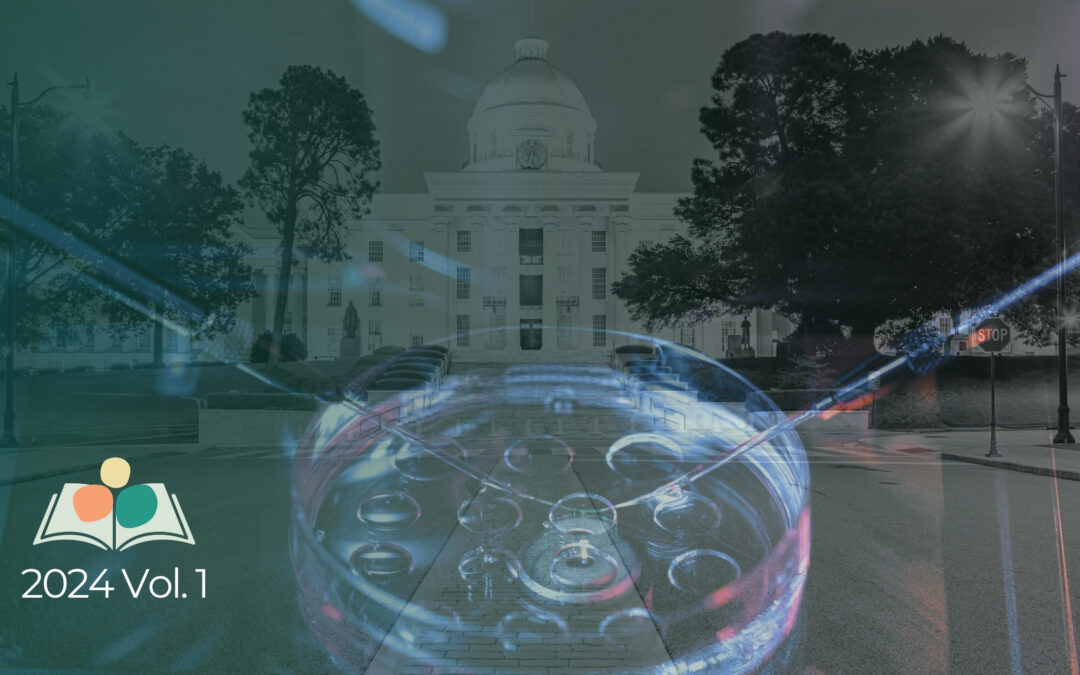Featured in the AllPaths Magazine, 2024 Volume 1
By Thea Burke
In December of 2020, a patient at the Center for Reproductive Medicine in Alabama walked into the cryogenic freezer, opened a cryotank and dropped embryos on the floor after burning his hand on the freezing liquid nitrogen used to preserve them. It should be noted that embryos are frozen in liquid nitrogen to slow the metabolism – to preserve them akin to slowing the breakdown of food in a freezer – something that would kill a baby. The embryos, the property of three different couples, were destroyed once they hit the ground. The couples sued under the Alabama statute, Wrongful Death of a Minor Act.
The use of the word “minor” to describe an embryo, something that was widely considered property rather than a life, sent the case to the Alabama Supreme Court, which ruled that frozen embryos are children. Almost immediately, IVF clinics in Alabama, one after the other, halted their procedures, leaving hundreds of people waiting on treatment in one of the most painful limbos of their lives. The Alabama decision left people in the state and throughout the nation in shock, which quickly turned to sadness and outrage.
As of March 1, temporary protections have been put in place through legislation that protects providers from civil liability when practicing IVF. The protective legislation was largely due to scores of advocates that came out against the ruling. Treatment has resumed, but the language has not changed – embryos are still considered people.
Here at AllPaths Family Building, Kate Weldon LeBlanc, Executive Director, has been working hard to reassure the community. “Struggling with fertility and family building is already difficult emotionally, so part of what made the Alabama decision concerning is that it added stress, even for those outside of the state,” she says. “One of our priorities has been reassuring our community that the ruling did not apply beyond Alabama. There has been no change to fertility care or embryo storage in New England at this time. However, from an advocacy perspective, we want everyone who cares about fertility to know that we need to support the availability and effectiveness of IVF nationwide.”
Personhood legislation in the global and local contexts: Lessons from abroad
For the lawyers, doctors, and advocates in the fertility and reproductive health space, the ruling itself was not surprising; in fact, they’ve been wary of it since the fall of Roe in 2022.

